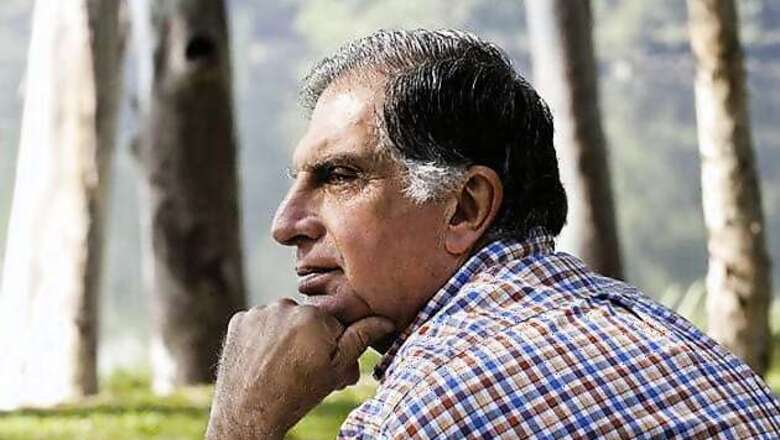
views
One does not attain freedom from the bondage of Karma
by merely abstaining from work.
No one attains perfection merely by giving up work
Because no one can remain actionless even for a moment.
Everyone is driven to action, helplessly indeed,
by the Gunas of nature
The deluded ones, who restrain their organs of action
but mentally dwell upon the sense of enjoyment,
are called hypocrites
The one who controls the senses by the mind and intellect
and engages the organs of action to Nishkam Karma-yoga
is superior, O Arjuna
Perform your obligatory duty,
because action is indeed better than inaction.
Even the maintenance of your body
would not be possible by inaction
Shri Krishna to Arjuna in the Bhagwad Gita
Dwell for a moment on these passages and the idea of Nishkam Karma-yoga. This epic conversation precedes the battle at Kurukshetra before Arjuna goes to face his cousins from Hastinapur and Shri Krishna wants Arjuna to be a Nishkam Karma-yogi.
Every action, or karma, Krishna tells Arjuna, has gunas or qualities. The noblest, he says, is Nishkam Karma—action without expectations. This, Krishna tells Arjuna, will calm the mind, allow him to pursue personal excellence, and is intended for the greater common good. As opposed to this, Krishna tells Arjuna, there is Sakam Karma, where all action is guided by aggression and the only outcome is personal success. The latter, he tells Arjuna, is undesirable because it eventually leads to conflict.
If you were to extrapolate these arguments into contemporary business, what you have on the one hand are men like Ratan Tata who've chosen the first path — that of Nishkam Karma — after what seems like a lifetime in the hard-nosed world of business. Then there are others, whose stories of hubris we've documented in recent issues of Forbes India who remain focussed on Sakam Karma, which, as Krishna argues, is destructive in the long run.
That is why understanding Ratan Tata and his motivation is important because what it provides are lessons in doing the right things in pragmatic ways.
What will Ratan Tata do when he turns 75 this year? We tried to address the question in December last year. The seasoned Jehangir Pocha, co-founder of INX News, described meticulously why Ratan Tata will pass the baton he now holds to Cyrus Mistry, as opposed to his half-brother Noel Tata, whom many had assumed would be the natural choice.
Pocha had then pointed out, presciently, "If Ratan Tata resisted the urge to try and preserve his life's work by handpicking his own successor, it is because he is believing and sincere in his desire to do—and be seen to do—the right and professional thing," he wrote. It was easy then for many of us to imagine Ratan Tata would settle into an obscure life. We were wrong.
The first indication of that came in his acceptance speech for a Lifetime Achievement Award instituted by the Rockefeller Foundation when he said his life's work isn't done yet. And that he hasn't been able to touch as many people at the bottom of the pyramid as he'd hoped he could by building affordable products. "We haven't been successful or innovative enough," he said of his stint at the helm of the Tata group in an interview to Bloomberg.
This, in spite of the fact, that in 2010 alone, the Tata trusts disbursed Rs 500 crore ($80 million at current exchange rates) to various causes and institutions. In dollar terms, this number would have been higher if the rupee hadn't devalued as much since then. The Rockefeller Foundation, one of the most generous in the world now, disburses $180 million each year. Experts say the Tata trusts are easily among the 10 most generous in the world. But their story remains an untold one.

















Comments
0 comment